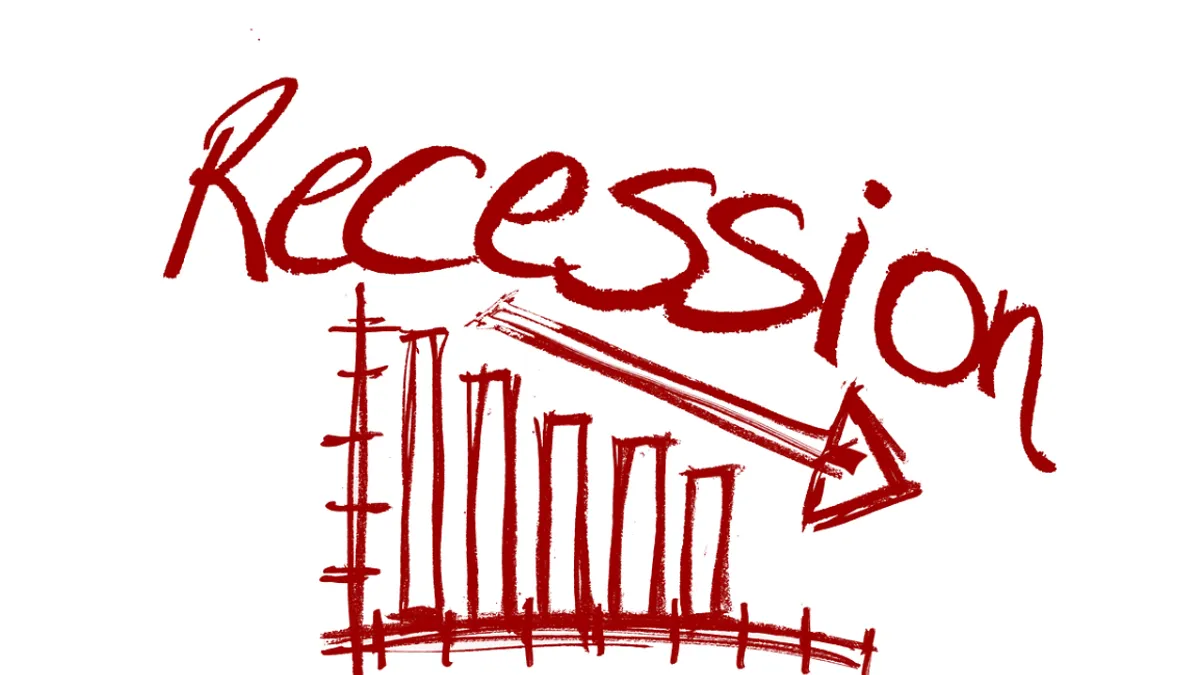Dive Brief:
- Fifty-two percent of CFOs believe the U.S. will be in recession by the end of 2020, and 76% predict a recession by mid-2021, according to a Duke University/CFO Global Business Outlook survey released Wednesday.
- “Business leaders continue to expect an economic slowdown in the U.S. before or concurrent with the presidential election,” said John Graham, finance professor at Duke University’s Fuqua School of Business and director of the survey. “I’d expect uncertainty about the election itself to cause firms to slow expansion in the summer and fall of 2020.”
- Seventy-nine percent of CFOs in Asia believe their countries will be in recession by the fourth quarter of 2020, as do the majority of CFOs in Africa (77%), Canada (67%) and Latin America (55%). Forty-nine percent of CFOs in Europe expect a recession by the end of 2020.
Dive Insight:
CFOs' pessimism doesn't track the latest forecast by the Federal Reserve. The Fed's Open Market Committee, which left short-term interest rates unchanged on Wednesday, is forecasting 2% growth in 2020 and 1.9% growth in 2021.
"The labor market remains strong and ... economic activity has been rising at a moderate rate," the Fed said in a statement Wednesday.
CFOs are nevertheless ready for a downturn; according to the Duke survey, 56% of U.S. companies say they are taking steps to prepare.
Among these firms, 59% are strengthening their balance sheets, 58% are reducing costs, 49% are increasing liquidity, and 31% are scaling back or delaying investment.
“During the last recession, CFOs could genuinely say that their lack of planning was a result of a sharp downturn that was a surprise to most,” said Campbell Harvey, a founding director of the survey and Fuqua finance professor. “However, it would be foolhardy to claim that the recession in 2020 or 2021 was a surprise. Although recessions are not controlled by CFOs, the impact on their firm is, to a large degree, managed by the CFO. This time around, CFOs will be judged by their preparations.”
Companies will continue increasing their cash holdings due to economic uncertainty. “Hoarding cash and reducing debt are the most obvious tactics to dull the blow of a recession,” Harvey said.
Fifty-four percent of U.S. firms indicate they are unlikely to spend their cash holdings during 2020 to preserve liquidity and spending power, should a recession take hold and tighten lending markets.












